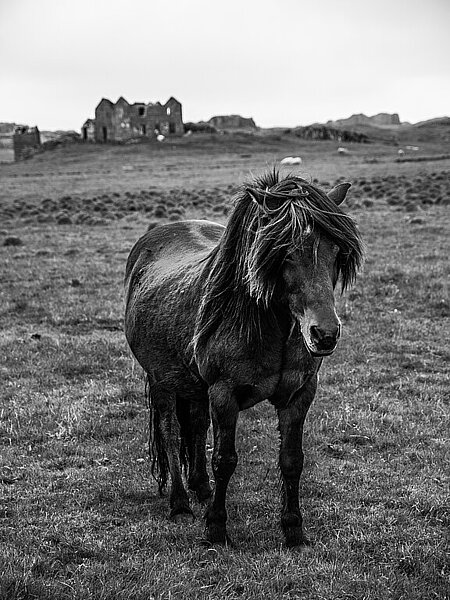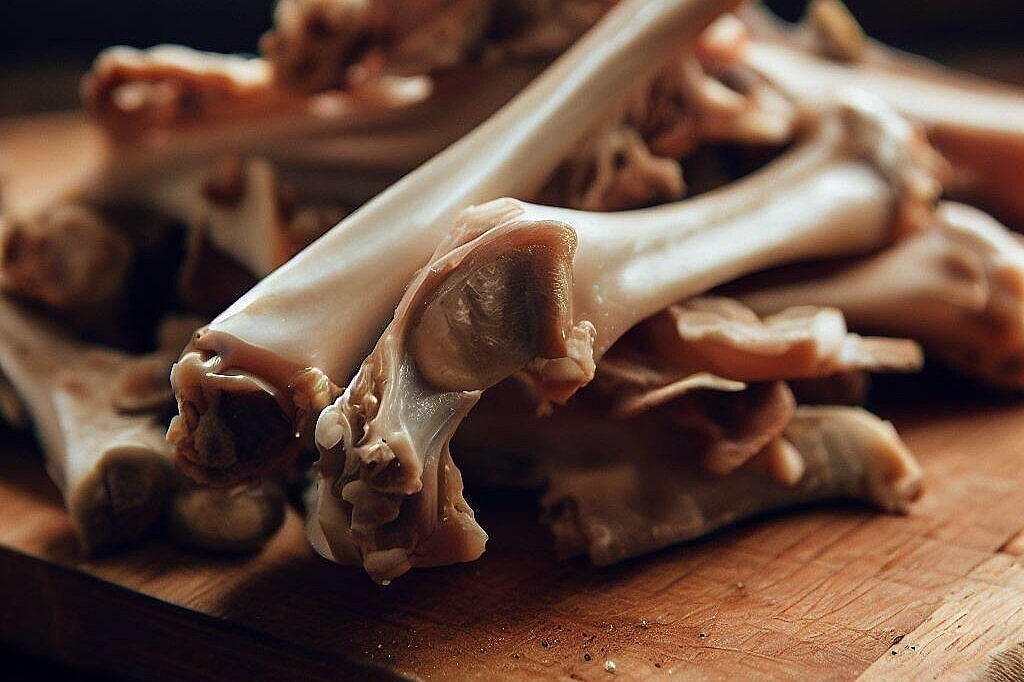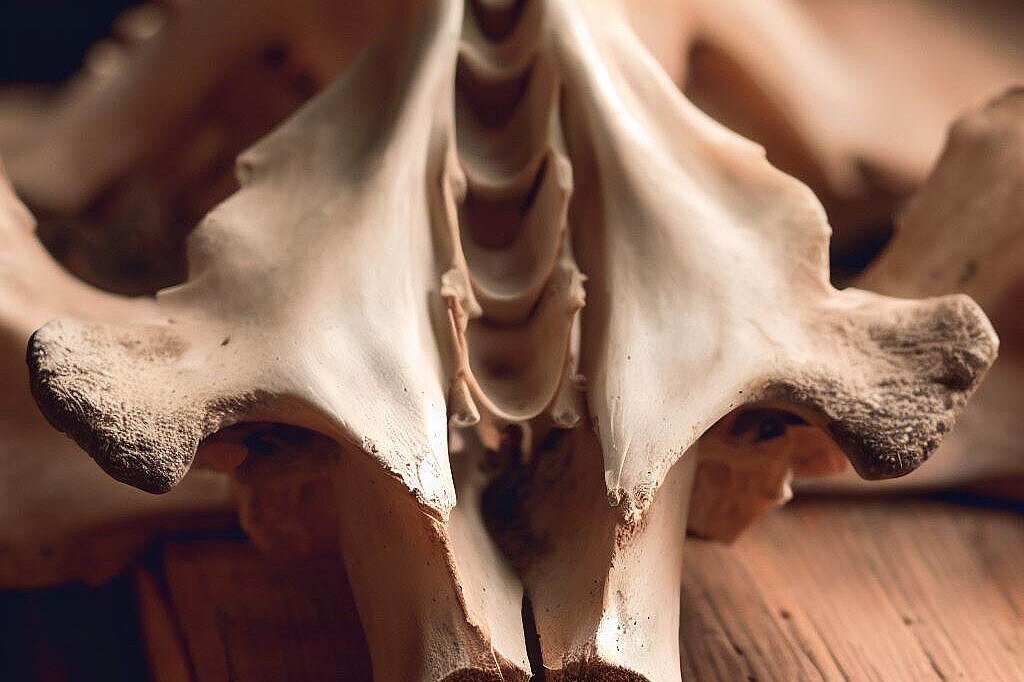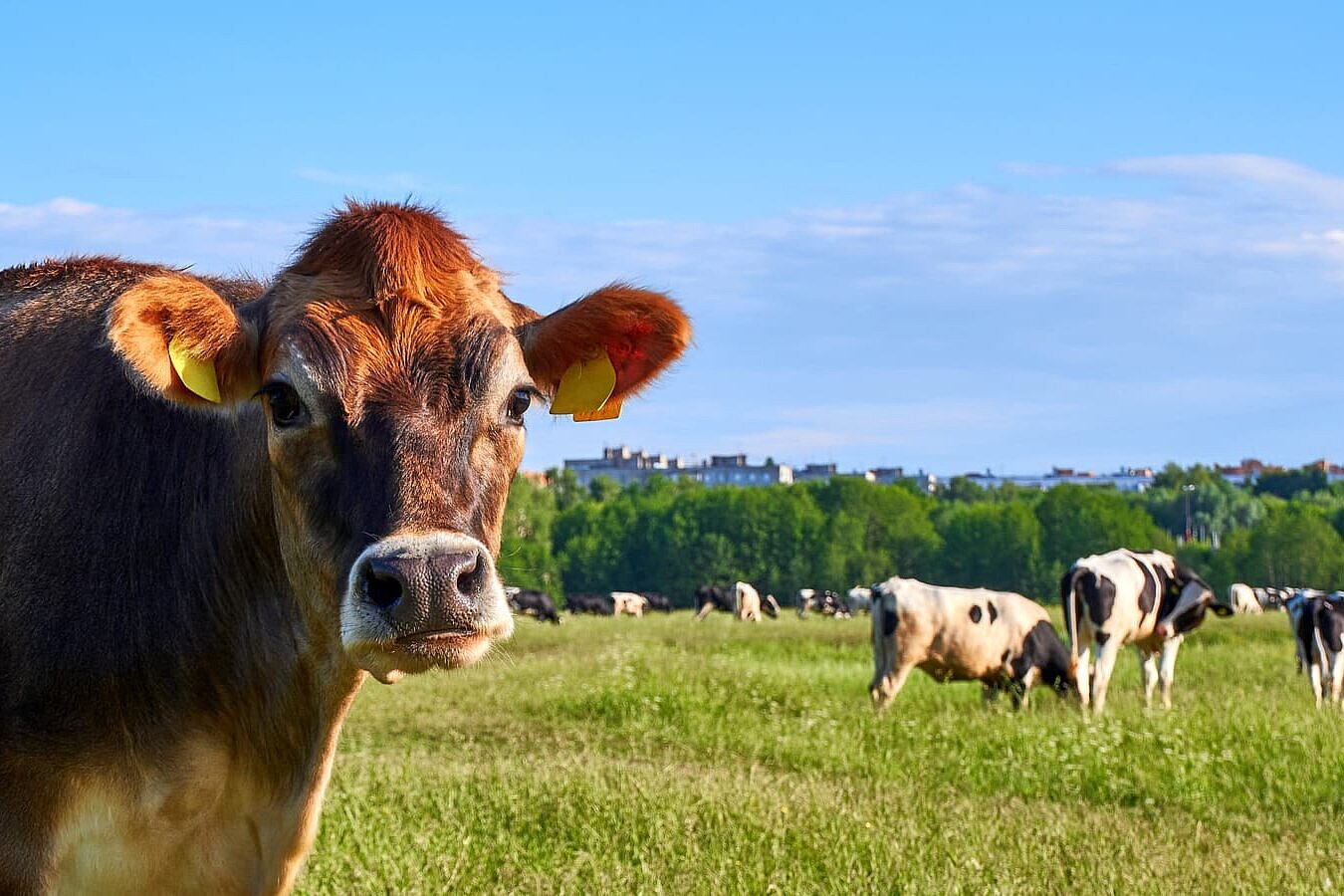Horse bones

You may have heard of horse bones as a treat or food supplement. But what are horse bones actually and are they really good for your four-legged friend? In this article, you'll find out everything you need to know about horse bones.
What are horse bones?
Horse bones are a by-product of horse slaughter. They are dried or smoked horse bones that are usually cut into pieces or ground. Horse bone is often offered as a snack or as a supplement to normal dog food. It is said to clean the teeth, strengthen the chewing muscles and provide the dog with calcium and other minerals.
What are the benefits of horse bones?
Horse bones have a number of benefits for dogs that you should be aware of. Firstly, horse bones are very lean and contain little fat. This is good for dogs that tend to be overweight or have a sensitive digestion. Secondly, a horse bone is hypoallergenic, which means it rarely triggers allergies. This is important for dogs that react to other types of meat such as beef or pork. In addition, horse bones taste very good to many dogs and can offer them variety in their diet.
What are the disadvantages of horse bones?
However, horse bones also have some disadvantages that you should not ignore. For one thing, a horse bone can be very hard and form splinters. This can lead to injuries in the mouth or gastrointestinal tract. Secondly, horse bones can contain too much calcium, especially if they are bone meal. This can lead to an imbalance in the mineral balance and hinder the absorption of other nutrients. Horse bones can also lead to an overdose of vitamin A. This can lead to symptoms of poisoning such as vomiting or diarrhea.
How do you feed horse bones correctly?
If you want to give your dog horse bones, you should follow a few rules to minimize the risks. Here are some tips:
- Choose only high-quality horse bones from a trusted source. Make sure they don't contain any additives such as salt or preservatives.
- Only give your dog whole bones or large pieces that they cannot swallow. Avoid small or sharp splinters that could harm him.
- Only give your dog raw or dried bones. Smoked bones can contain carcinogens.
- Only give your dog as many horse bones as he can tolerate. The recommended amount is about 10% of his daily energy requirement. Do not overdo it with the feeding, otherwise diarrhea or constipation may occur.
- Watch your dog as he chews and take the bone away if it gets too small or if he shows signs of discomfort.
- Stay close by so that you can intervene in an emergency.
Horse bones can be a tasty and healthy treat for your dog if you feed them properly. They can help him keep his teeth clean and train his chewing muscles. They can also be a good alternative for dogs that are allergic to other meats/bones.
Properties 3
Are you looking for other ingredients with a specific property?
Just click on them to find more.
If you notice any signs of hypersensitivity or poisoning in your dog, you should see your vet immediately. We are not a substitute for a vet, but we try to be as accurate as possible. Every dog reacts differently and we recommend you get a second opinion or consult your vet if in doubt.
Stay healthy and take good care of your four-legged friend!😊
Similar to Horse bones
Poultry bones are the bones of chickens, turkeys, ducks or other birds that are used as a source of meat. They can be raw or cooked, with or without meat and skin. Poultry bones have a different...
What is a horse sternum bone? A horse sternum bone is a bone from the horse's rib cage. It consists of cartilage and bone tissue and is relatively soft and flexible. It is often offered as a chew for...
Cattle bones are the bones of cattle, which are usually a waste product of meat processing. They can come from various parts of the cow, such as the sternum, ribs, joints or tail. In addition to...
Wild bones are bones from animals that live in the wild and feed naturally. They are usually larger and harder than bones from farm animals such as cattle or pigs. They also contain less fat and...



